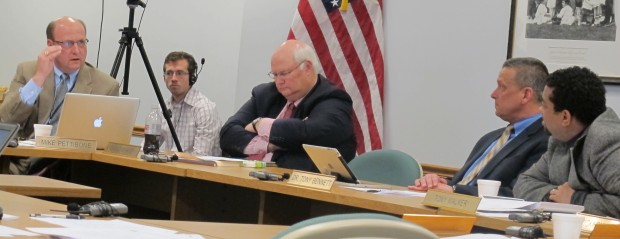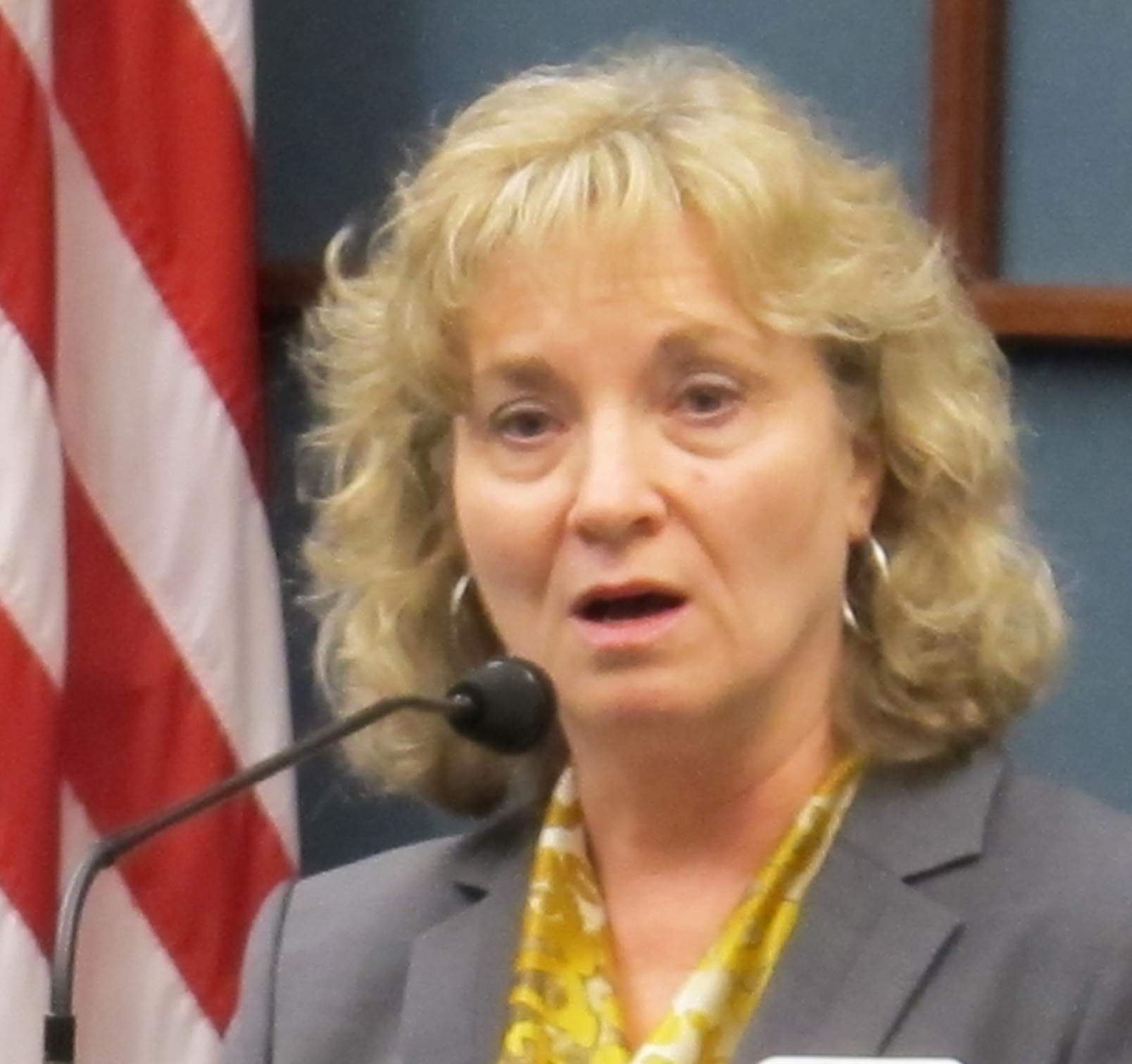Can Glenda Ritz Work With A New, Pence-Appointed State Board?

Kyle Stokes / StateImpact Indiana
The State Board of Education meets in December 2011 in Indianapolis. From left to right, board members Michael Pettibone and David Shane, state superintendent Tony Bennett, and board member Tony Walker.
In the early stages of her campaign, state superintendent-elect Glenda Ritz knew that defeating well-funded and highly-visible incumbent Tony Bennett would only be her first challenge.
The next challenge — barring fellow Democrats retaking Indiana’s General Assembly or governorship — would be winning over the State Board of Education, the executive panel charged with overseeing Ritz’s work.
Republican Governor-elect Mike Pence, who opposes Ritz’s stances as much as Bennett, appoints the members of that board.
As we wrote last week, it seems clear Ritz has little-to-no chance of winning a wholesale repeal of state laws authorizing Indiana’s voucher program or mandating teacher evaluations on her own terms.
In her new post, Ritz will be far from powerless. As the leader of the Indiana Department of Education, she will oversee the implementation of many of the policies she opposed.
That has some of Indiana’s charter and voucher advocates feeling particularly uneasy. With the details of the state’s charter or voucher programs key to their success, they fear Ritz’s control over those details could be disastrous.
But Ritz must still pass muster with the State Board. Ritz chairs the board and casts votes, but could find herself outgunned by the panel’s 10 other gubernatorially-appointed members.
“On a lot of issues, she could be in a 1-10, or a 2-9, or 3-8 a minority,” says the Indiana Chamber of Commerce’s Derek Redelman, a Bennett ally. He told StateImpact:
She’s going to have to convince the State Board to take action. If her approach is that she just doesn’t like this stuff and wants to get rid of it, she’s going to learn pretty quickly that it’s not going to go anywhere. If she wants to suggest to the state board that there are some improvements that could be made but she’s not necessarily going to back off of these issues, then they might listen, but I guess I haven’t heard much of that yet.
By law, “no more than six of the members [of the State Board] may be from the same political party.” However, some Democrats support school choice and test-based school accountability as much as Bennett or outgoing Gov. Mitch Daniels.
The State Board may also act without Ritz on some issues. For instance, while Ritz has said she opposes further school takeovers, Redelman says board members could intervene in a school with chronically-poor test scores without her consent.
But the hints that Ritz will be a “lame duck” may be overblown too. As Niki Kelly writes for the Fort Wayne Journal-Gazette:
State board member Michael Pettibone, also superintendent at Adams Central Schools, said the board listens to the superintendent and Department of Education staff, and he doesn’t think the board members will shut her down completely.
“If you have another person coming forward with ideas after you have built some trust I don’t think there will be a continuous wall,” he said. …
Probably the most important thing Ritz has on her side is a large staff [former state superintendent Suellen Reed says].
“The power of having a staff and all the information, as well as cooperation of the superintendents and teachers across the state, can’t be overstated,” Reed said. “The information she has is trustworthy. It’s the source that people go to for the facts.”
Indianapolis Star education reporter Scott Elliott points out General Assembly members could vote to strip the state superintendent’s power over the State Board, making it all the more critical for Ritz to find common ground with statehouse Republicans.
All of this is speculation until January, when Ritz takes office. As former Indiana University education policy professor Jonathan Plucker told StateImpact last month:
I personally found these things tend to be personality driven. Even if people agree on many issues, it really comes down to personality — how well do they get along, how much do they value the other person? You just don’t know that until they start working together. As interesting it is to play the parlor game of, ‘I wonder how x and y will get along?’ you just don’t know.


